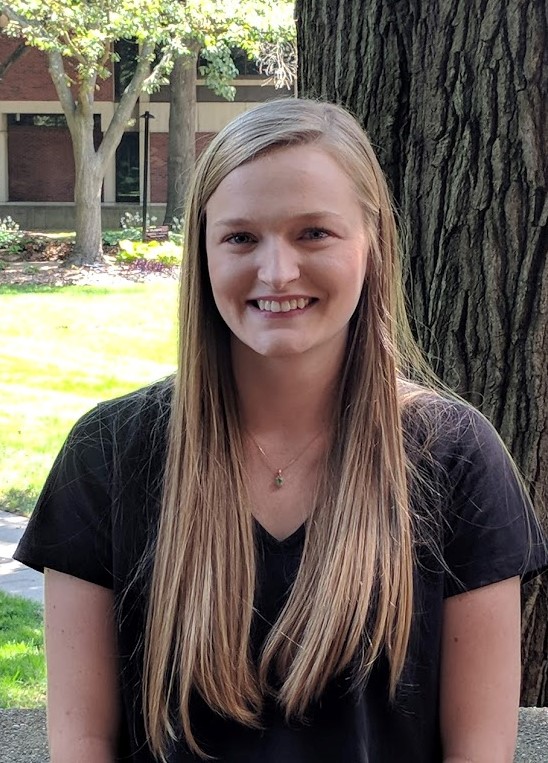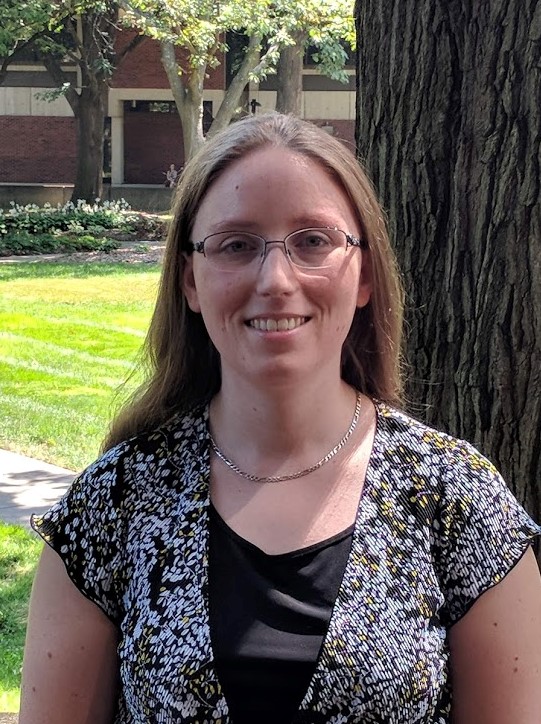Maddy Decker, Writing Consultant
Call me someone who’s watched Aquamarine 17 times too many, but I believe in soulmates. I believe that each person has multiple soulmates and that not every soulmate is meant to be a romantic match: some are just friends that you connect with on another level.
In 2018, sick of my anxiety controlling me, I threw myself on a plane to Ireland to study abroad for the summer. I met one of my soulmates, Becky, in our hostel the day before we started our program. Despite how shy I usually am, we were discussing everything from grief to spirituality to mutually enjoyed YouTube videos within a day of knowing each other. She bunked above me in the room we shared with the other girls, and we spent nearly every moment of the next 6 weeks together laughing and continuing our deep discussions. We returned to the program the next summer to share another 4 weeks, but the pandemic prevented us from meeting up in person again. The problem: Becky lives in Minnesota, a 10-hour drive away from Louisville. We vowed to keep in touch but quickly realized that neither of us particularly enjoy holding our conversations over text or SnapChat messages.
I don’t remember who sent the first letter or if it was a mutual decision we made; regardless, writing to each other has helped us maintain our friendship and communication at a pace and level that we both seem comfortable with. When I receive a letter from Minnesota, I know I’m in for a treat. Our letters usually end up being 5-7 handwritten pages, depending on how we feel when we write them, and we talk about whatever comes to mind. Sometimes our letters are funny, and sometimes they’re more serious in tone (they’re usually a combination of both). I tell Becky how school is going, what shows I’ve been bingeing, and that I’m not entirely sure what my future plans are after the next few years. She tells me about her family, boyfriend, and work, and she shares that she’s facing similar uncertainties. We serve as each other’s friends and confidantes through our letters.
The pace of our exchanges contributes to the success of our letter writing, I believe. Due to the unfortunate truth that being an adult means not spending every second with or talking to your best friends, we each keep fairly busy. We write a few times a year, always making sure to send a letter near the winter holidays, sometimes with a small gift attached. Somehow, we do manage to maintain conversations even with the large gaps between our letters. We ask each other questions and answer them, knowing that each letter will continue to layer and build with our past queries and our present news. It’s like catching up over a long lunch, or even a weekend trip, depending on how long it takes me to read and respond to her, and I treasure our letters.
I’ve seen letter writing pop up as a fun hobby to try, and I cannot recommend it enough. Becky and I continue to write to each other, and I’ve recently started sending shorter letters to some of my other friends, including a friend I usually see at least once a month. If you don’t have the kind of relationship that enables a regular exchange, you might consider looking online to find a pen pal or writing to someone you know who isn’t expecting mail (or, at least, ‘fun’ mail).
It’s always exciting to receive a letter, and it can be so enjoyable to write one. Try choosing some decorative stationary that calls out to you (although there’s nothing wrong with notebook paper)! Use a pen in a color you like, and cover your letter in stickers, stamps, tape, sketches, and whatever else makes you happy. Tell someone a secret, tell them something funny, or just tell them about your day (and if you’d like some more tips or inspiration, you should scroll back to an earlier post from Andrew Hutto: “You Should Send a Holiday Card This Year – and Here’s How!”). You might not be writing to your soulmate, but you could find that you enjoy picking up this new hobby!




 This is because these technologies provide genuine platforms for improvement to our information and literacy practices in terms of what is learned, how it is learned, where it is learned and when it is learned. In fact, these available digital devices enable students to learn at their own pace and develop skills needed in a modern society.
This is because these technologies provide genuine platforms for improvement to our information and literacy practices in terms of what is learned, how it is learned, where it is learned and when it is learned. In fact, these available digital devices enable students to learn at their own pace and develop skills needed in a modern society. I’ve spent countless hours sitting in front of a blank word document having no clue what to say – regretting the choices I have made that led me to writing another paper. I know it sounds dramatic (and I don’t by any means actually hate writing) but sometimes I feel so overwhelmed thinking about my audience and if they will find it good enough, that I don’t even want to complete the assignment at all.
I’ve spent countless hours sitting in front of a blank word document having no clue what to say – regretting the choices I have made that led me to writing another paper. I know it sounds dramatic (and I don’t by any means actually hate writing) but sometimes I feel so overwhelmed thinking about my audience and if they will find it good enough, that I don’t even want to complete the assignment at all.

 One writer was working on a paper in which she had to identify an area in her life where she possessed rare expertise, and our brainstorming led her to a past job as a phlebotomist and her unique knowledge on how to draw blood.
One writer was working on a paper in which she had to identify an area in her life where she possessed rare expertise, and our brainstorming led her to a past job as a phlebotomist and her unique knowledge on how to draw blood.  know what you want to write about, you’ve done your research, and you’re in the perfect environment to let your thoughts turn into words. The problem is you don’t know how to start or where to go after that.
know what you want to write about, you’ve done your research, and you’re in the perfect environment to let your thoughts turn into words. The problem is you don’t know how to start or where to go after that.